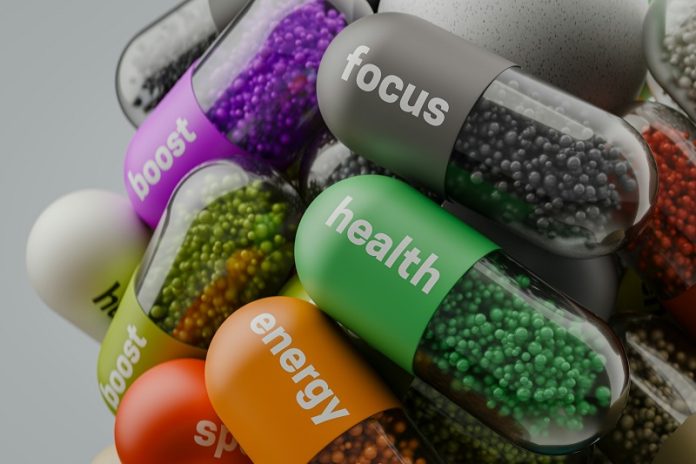
Managing diabetes and high cholesterol often means making lifestyle changes like eating healthier, getting regular exercise, and sometimes taking prescribed medications.
But did you know that certain natural supplements might also help support blood sugar control and improve cholesterol levels?
While these supplements are not a replacement for medical treatment, research shows they can be a useful addition to a healthy lifestyle.
One of the most popular supplements for managing diabetes is berberine. This natural compound is found in several plants and has been widely studied for its ability to lower blood sugar levels. Research shows that berberine works in a way similar to metformin, a common drug used to treat type 2 diabetes.
It helps the body use insulin more effectively and reduces sugar production in the liver. Studies suggest that taking 500 mg of berberine two to three times a day can significantly lower blood sugar levels. Not only that, but it also improves cholesterol and triglyceride levels, making it beneficial for heart health as well.
Magnesium is another important supplement, especially for people with diabetes. Magnesium helps the body regulate blood sugar levels and improves insulin sensitivity. Many people with diabetes are actually low in magnesium, which can make it harder to manage blood sugar.
Eating magnesium-rich foods like spinach, almonds, and avocados or taking a magnesium supplement can help. Research has shown that magnesium supplementation can lower fasting blood sugar levels and even reduce the risk of developing type 2 diabetes. It’s a simple addition that can make a big difference.
When it comes to managing high cholesterol, omega-3 fatty acids found in fish oil are one of the best-known supplements. Omega-3s help reduce triglycerides, which are fats in the blood that increase the risk of heart disease.
They also have anti-inflammatory effects, which are good for both heart health and overall well-being. The American Heart Association recommends omega-3 supplements for people with high triglycerides, with doses typically ranging from 1,000 to 4,000 mg per day, depending on individual health needs. You can also get omega-3s by eating fatty fish like salmon, mackerel, and sardines.
Another promising supplement for lowering cholesterol is red yeast rice. This traditional Chinese remedy contains compounds similar to statins, which are commonly prescribed medications for lowering cholesterol.
Studies show that red yeast rice can effectively reduce LDL cholesterol, often called the “bad” cholesterol, as well as total cholesterol levels. However, because it works similarly to prescription drugs, it’s important to use it under medical supervision to avoid side effects.
Cinnamon is a well-known spice that also shows promise for managing both diabetes and cholesterol. Research indicates that cinnamon supplements can lower fasting blood sugar levels and improve cholesterol profiles by reducing LDL cholesterol while increasing HDL, the “good” cholesterol.
Adding cinnamon to your diet or taking it as a supplement is an easy way to support heart and blood sugar health. Many people find it simple to sprinkle cinnamon on their morning oatmeal or add it to smoothies for an extra boost.
Fiber supplements like psyllium husk are also helpful for both conditions. Soluble fiber slows down the absorption of sugar into the bloodstream, leading to better blood sugar control after meals.
It also binds to cholesterol in the digestive system, helping to lower LDL cholesterol levels. Studies suggest taking about 10–15 grams of soluble fiber daily for the best results. In addition to psyllium husk, foods like oats, beans, and fruits are good sources of soluble fiber.
While these supplements can be very helpful, it’s important to remember that they work best when combined with a healthy lifestyle. Regular exercise, a balanced diet, and avoiding smoking are crucial for managing both diabetes and high cholesterol. Supplements should be seen as a support, not a replacement for medical care.
Also, always talk to your doctor before starting any new supplement, especially if you are already taking medications. Some natural supplements can interact with prescription drugs or cause side effects if taken in high doses.
In summary, adding the right supplements to your daily routine—like berberine, magnesium, omega-3s, red yeast rice, cinnamon, and fiber—can give your health a helpful boost. With proper guidance and consistency, these natural remedies can play a significant role in supporting healthy blood sugar levels and better heart health.
If you care about diabetes, please read studies about Vitamin D and type 2 diabetes, and to people with diabetes, some fruits are better than others.
For more health information, please see recent studies that low calorie diets may help reverse diabetes, and 5 vitamins that may prevent complication in diabetes.





